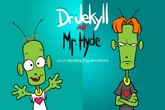Health Problems Plague Kids Who Have a Smartphone Too Young
A study published this month in the journal Pediatrics found that kids who have a smartphone by the age of 12 have a higher risk of poor sleep, depression, and obesity compared to their peers who don’t have the device. In fact, the earlier in life a child gets a smartphone, the more likely they are to develop these health issues.
The research, conducted by doctors at Children’s Hospital Philadelphia, the University of California at Berkeley, and Columbia University, gathered data from over 10,000 adolescents across the U.S. for two years. Their findings were eye-opening: Among the participants, over 63 percent owned a smartphone, and most of those kids had received the phone by the time they were 11. A year after the study was complete, the kids without smartphones had generally better mental health than those with them. Smartphones have legitimate uses, of course, and can play a key role in education and making social connections. But as child psychiatrist Dr. Ran Barzilay, the study’s lead author, notes, the decision to give a child younger then 12 a smartphone is a major one that should be made with care and deliberation. “Most probably, all teens will eventually have a smartphone,” he said. “Once this happens, it is advisable to monitor what our children do on their phones.” “Eventually” might come sooner than Dr. Barzilay knows—according to the Pew Research Center, 95 percent of teens between the ages of 13 and 17 owned a smartphone in 2024.
The research, conducted by doctors at Children’s Hospital Philadelphia, the University of California at Berkeley, and Columbia University, gathered data from over 10,000 adolescents across the U.S. for two years. Their findings were eye-opening: Among the participants, over 63 percent owned a smartphone, and most of those kids had received the phone by the time they were 11. A year after the study was complete, the kids without smartphones had generally better mental health than those with them. Smartphones have legitimate uses, of course, and can play a key role in education and making social connections. But as child psychiatrist Dr. Ran Barzilay, the study’s lead author, notes, the decision to give a child younger then 12 a smartphone is a major one that should be made with care and deliberation. “Most probably, all teens will eventually have a smartphone,” he said. “Once this happens, it is advisable to monitor what our children do on their phones.” “Eventually” might come sooner than Dr. Barzilay knows—according to the Pew Research Center, 95 percent of teens between the ages of 13 and 17 owned a smartphone in 2024.
Categories: Teen Health
Neurons aren’t supposed to regrow but these ones brought back vision
After injury, the visual system can recover by growing new neural connections rather than replacing lost cells. Researchers found that surviving eye cells formed extra branches that restored communication with the brain. These new pathways worked much like the originals. The repair process, however, was slower or incomplete in females, pointing to important biological differences in recovery.
Categories: Teen Health
Georgia High Schoolers Invent a New Way to Diagnose Lyme Disease
A group of high school students in Atlanta, Georgia, has created a new way to detect and potentially treat Lyme disease. Their discovery, which uses CRISPR-based gene-editing technology, is faster and more accurate than current methods of diagnosis, which often miss the disease in its earliest stage when it’s easiest to treat. Their project also uses CRISPR as a potential means of treating the disease through the bacteria that cause it. The students unveiled their invention at the International Genetically Engineered Machine (iGEM) competition in France this October, where they finished in the top ten for high school students.
Lyme disease can infect humans and other animals through the bites of ticks that carry the bacterium Borrelia burgdorferi. Symptoms inlclude arthritis, swollen joints, fever, and an initial rash. If left untreated the disease can become chronic, leading to potential organ damage. Lyme disease infects almost half a million Americans every year, primarily in the Northeast and Midwest.
Lyme disease can infect humans and other animals through the bites of ticks that carry the bacterium Borrelia burgdorferi. Symptoms inlclude arthritis, swollen joints, fever, and an initial rash. If left untreated the disease can become chronic, leading to potential organ damage. Lyme disease infects almost half a million Americans every year, primarily in the Northeast and Midwest.
Categories: Teen Health
Anxiety and insomnia linked to sharp drops in key immune cells
Natural killer cells act as the immune system’s rapid-response team, but the stress of anxiety and insomnia may be quietly thinning their ranks. A study of young women in Saudi Arabia found that both conditions were linked to significantly fewer NK cells—especially the circulating types responsible for destroying infected or abnormal cells. As anxiety severity increased, NK cell levels dropped even further, suggesting a stress-driven weakening of immune defenses.
Categories: Teen Health
Indoor tanning triples melanoma risk and seeds broad DNA mutations
Researchers discovered that tanning beds cause widespread, mutation-laden DNA damage across almost all skin, explaining the sharply increased melanoma risk. Single-cell genomic analysis revealed dangerous mutations even in sun-protected regions. Survivors’ stories underscore how early tanning habits have lifelong consequences. The findings push for stricter policies and clear public warnings.
Categories: Teen Health
Kids’ anxiety and depression dropped fast after COVID school reopenings
Researchers discovered that children who went back to school during COVID experienced far fewer mental health diagnoses than those who stayed remote. Anxiety, depression, and ADHD all declined as in-person learning resumed. Healthcare spending tied to these conditions also dropped. Girls showed the largest improvements, highlighting the importance of school-based structure and support.
Categories: Teen Health
Stressed rats keep returning to cannabis and scientists know why
Rats with naturally high stress levels were far more likely to self-administer cannabis when given access. Behavioral testing showed that baseline stress hormones were the strongest predictor of cannabis-seeking behavior. Lower cognitive flexibility and low endocannabinoid levels also contributed to increased use. The results hint at possible early indicators of vulnerability to drug misuse.
Categories: Teen Health
Why ultra-processed foods make teens eat more when they aren’t hungry
A Virginia Tech study shows that ultra-processed foods may influence adolescents differently from slightly older young adults. Participants aged 18 to 21 ate more at a buffet and snacked even when not hungry after two weeks on an ultra-processed diet. Because eating without hunger predicts future weight gain, these findings hint at a heightened vulnerability during late adolescence.
Categories: Teen Health
Texas Teens Invent Device to Filter Microplastics from Water Supply
Microplastics, or tiny fragments of plastic worn away from the products we use and discard every day, are a common environmental problem. They’ve been found in the deepest oceans and on the highest mountain peaks, and in our bodies, too—researchers in Australia estimate that the average person swallows and breathes in a credit card’s worth of plastic every week. The health hazards of microplastics aren’t conclusive, but they’ve been linked to cancer, dementia, and reproductive disorders. And while there are ways to remove microplastics from the environment, these are generally expensive and can result in other types of pollutants.
Now, inspired by a visit to a water treatment plant and the realization that the U.S. Environmental Protection Agencey (EPA) doesn’t regulate microplastics, 17-year-olds Victoria Ou and Justin Huang of Woodlands, Texas, have invented an inexpensive, clean device that extracts microplastics from water. The process, which uses ultrasonic sound waves, is still being developed, but the pair are working to make it remove plastics from drinking water and industrial and residential wastewater. To help them continue their research, Ou and Huang won the Gordon E. Moore Award for Positive Outcomes for Future Generations, with a prize of $50,000.
Now, inspired by a visit to a water treatment plant and the realization that the U.S. Environmental Protection Agencey (EPA) doesn’t regulate microplastics, 17-year-olds Victoria Ou and Justin Huang of Woodlands, Texas, have invented an inexpensive, clean device that extracts microplastics from water. The process, which uses ultrasonic sound waves, is still being developed, but the pair are working to make it remove plastics from drinking water and industrial and residential wastewater. To help them continue their research, Ou and Huang won the Gordon E. Moore Award for Positive Outcomes for Future Generations, with a prize of $50,000.
Categories: Teen Health
A routine shingles shot may offer powerful defense against dementia
A unique vaccine rollout in Wales gave researchers an accidental natural experiment that revealed a striking reduction in dementia among seniors who received the shingles vaccine. The protective effect held steady across multiple analyses and was even stronger in women. Evidence also suggests benefits for people who already have dementia, hinting at a therapeutic effect.
Categories: Teen Health
Scientists reveal what really drives the “freshman 15”
College life creates a perfect storm for overeating, as students consume more calories when surrounded by friends, eating in dining halls, or following unstructured schedules. A four-week study using a mobile app revealed that students often underestimate how much they eat, especially in social or formal dining settings. Emotional influences, gender differences, and environmental cues all contribute to this subtle but consistent rise in intake.
Categories: Teen Health
Doctors are seeing more aggressive breast cancer in younger women than expected
Younger women are being diagnosed with breast cancer more often than screening guidelines anticipate. Many of these cancers are invasive and harder to treat, especially in those under 40. After analyzing 11 years of data, researchers found that this age group makes up a steady and significant share of diagnoses. The results support a stronger push for earlier risk evaluation.
Categories: Teen Health
California Law Lowers the Volume on Streaming Service Ads
A law signed by California Governor Gavin Newsom in October aims to put a stop to excessively loud advertisements on streaming services like Hulu, Netflix, and Amazon Prime in the state. The law is a response to these platforms airing commercials at a louder volume than the shows and movies during which they play, as well as a corresponding “troubling jump” in ad noise complaints received by the Federal Communications Commission (FCC). The streaming services are required to implement the ad volume limits by July 2026.
Data from the U.S. Centers for Disease Control and Prevention (CDC) estimates that 12.5 percent of U.S. children and teens have been diagnosed with some form of noise-related hearing loss. But how loud is too loud? According to the World Health Organization (WHO), the loudest you should ever play a personal audio device is 75 decibels, or no more than 60 percent of its maximum volume.
Data from the U.S. Centers for Disease Control and Prevention (CDC) estimates that 12.5 percent of U.S. children and teens have been diagnosed with some form of noise-related hearing loss. But how loud is too loud? According to the World Health Organization (WHO), the loudest you should ever play a personal audio device is 75 decibels, or no more than 60 percent of its maximum volume.
Categories: Teen Health
Simple thyroid check in pregnancy may lower autism risk
Researchers have found that ongoing thyroid hormone imbalance in pregnancy may be linked to higher autism risk in children. Treated thyroid disorders did not show the same effect. The longer the imbalance lasted across trimesters, the more the risk appeared to rise. The study underscores the need for consistent thyroid monitoring.
Categories: Teen Health
Millions are about to choose the wrong Medicare plan
Millions face Medicare decisions each year, but many don’t take advantage of tools that can save them money and stress. Insurance marketing often overshadows unbiased options like SHIP, leaving people unaware of better choices. Comparing real costs—not just premiums—can prevent unpleasant surprises, especially when provider networks or drug rules change. New assistance programs for low-income adults offer valuable help for 2026.
Categories: Teen Health
A popular “essential” medicine may be putting unborn babies at risk
A major review across 73 countries finds that access to antiseizure medications is rising, but safe prescribing isn’t keeping pace. Valproate—linked to serious birth defects—remains widely used in many regions despite WHO warnings. Limited access to newer drugs means millions may still be at risk. Researchers urge global education and stronger safeguards.
Categories: Teen Health
A common nutrient deficiency may be silently harming young brains
Scientists studying young adults with obesity discovered early indicators of brain stress that resemble patterns seen in cognitive impairment. The group showed higher inflammation, signs of liver strain and elevated neurofilament light chain, a marker of neuron injury. Low choline levels appeared closely tied to these changes. The results hint that early metabolic disruptions may quietly influence the brain long before symptoms emerge.
Categories: Teen Health
Nearly 50 Years of the Great American Smokeout
November is lung cancer awareness month, and this year it coincides with almost fifty years of the American Cancer Society’s Great American Smokeout. First held in California on November 18, 1976, the initial Great American Smokeout helped nearly a million people quit smoking for the day. It continues to encourage people to stop smoking nearly a half-century later, emphasizing the resources available to help them quit for good.
According to the U.S. Centers for Disease Control and Prevention (CDC), cigarette smoking among U.S. adults has dropped by almost two-thirds in that time, and among current smokers nearly 70 percent want to quit and about half have made an effort to do so in the past year. This is good news, but almost 35 million American adults still smoke, and lung cancer remains the leading cause of cancer deaths in the United States and Canada. Even more alarming, research shows an increase in lung cancer diagnoses among people under age fifty, especially those who have never smoked. There could hardly be a better reminder that, if you smoke or know someone who does, it’s never too early to stop.
According to the U.S. Centers for Disease Control and Prevention (CDC), cigarette smoking among U.S. adults has dropped by almost two-thirds in that time, and among current smokers nearly 70 percent want to quit and about half have made an effort to do so in the past year. This is good news, but almost 35 million American adults still smoke, and lung cancer remains the leading cause of cancer deaths in the United States and Canada. Even more alarming, research shows an increase in lung cancer diagnoses among people under age fifty, especially those who have never smoked. There could hardly be a better reminder that, if you smoke or know someone who does, it’s never too early to stop.
Categories: Teen Health
Just a few cigarettes a day can damage your heart for decades
People who smoke only a couple of cigarettes a day still face surprisingly high risks of heart problems and early death. A large review of long-term studies shows that even very light smokers can see their risk of heart failure climb sharply. While quitting leads to major health improvements, some risk remains for decades. The safest approach is quitting entirely, especially at younger ages.
Categories: Teen Health
Scientists reverse kidney damage in mice, hope for humans next
Researchers uncovered how fatty molecules called ceramides trigger acute kidney injury by damaging the mitochondria that power kidney cells. By altering ceramide metabolism or using a new drug candidate, the team was able to protect mitochondrial function and completely prevent kidney injury in mice.
Categories: Teen Health






